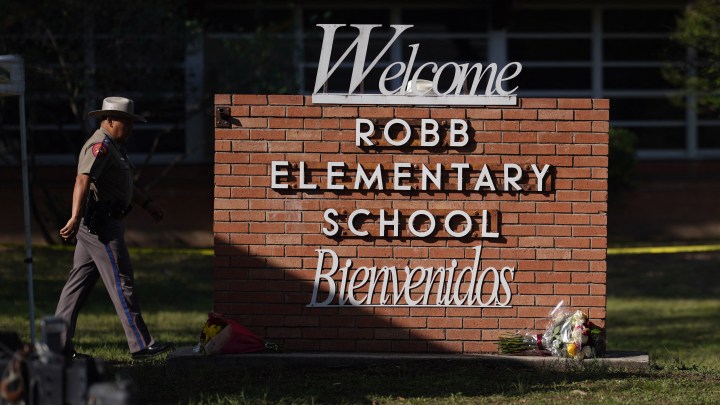
Since Sandy Hook killings a decade ago, Congress has put no limits on gun sales
Since Sandy Hook killings a decade ago, Congress has put no limits on gun sales

On May 24, a gunman killed 19 children and two adults in a shooting at an elementary school in Uvalde, Texas. Since 2018, there have been 119 school shootings, according to Education Week, and 27 so far in 2022.
Each mass shooting is a senseless, incomprehensible tragedy. And guns are a multibillion-dollar business in America.
Today, we’re revisiting a segment of a 2013 story that explores background checks and gun purchases. The story, by David Gura, ran in February of that year in response to the Sandy Hook Elementary School shooting in Newtown, Connecticut. There, on Dec. 14, 2012, a gunman killed 20 children and six adults.
Since then, Congress has yet to pass a new background check law or gun safety law. New laws on the sale of firearms, where they exist, have been passed state by state. Nothing has changed at the federal level in the sale or regulation of guns since.
Since the school shooting in Newtown, Connecticut, lawmakers have been revisiting the issue of background checks for gun buyers, debating what information you should have to give the government to buy a gun, and what the government should be able to do with that information. There’s that old saying, “Follow the money.” I decided to follow the guns. Or try to.
The first gun — a pump-action Remington 870. It’s the most popular shotgun ever made.
Bob Arthur owns Shooters Supply, in Berlin, Md.
“It has that distinctive sound that everybody knows,” he says. “You can get them in long barrels, short barrels. This one has an 18.5-inch barrel. It’s compact, so that you can keep it in a closet and it’d be ready for quick use.”
To buy one, I would need to fill out a 4473 — a six-page form from the Bureau of Alcohol, Tobacco, Firearms and Explosives.
I’d have to write my name and address. My Social Security Number is optional. And there’s half a page of “yes or no” questions.
“Have you ever been convicted in any court of a felony, or any other crime, for which the judge could have imprisoned you for more than one year, even if you received a shorter sentence including probation?”
“Are you an unlawful user of, or addicted to, marijuana or any depressant, stimulant, narcotic drug, or any other controlled substance?”
Arthur has to write down the type of gun — the make and model and the serial number. Then, he calls the FBI’s Criminal Justice Information Services Division, in Clarksburg, West Virginia, and he gives them only the most basic information: name, address, driver’s license number.
“They give me a ‘yay’ or ‘nay,’ and out the door you go,” he says. “It’s quick and easy. And we take credit cards.”
That form, the 4473, won’t go anywhere. By law, Arthur has to hold onto it for 20 years. That means the FBI doesn’t have anything close to a complete record of what guns are sold.
There’s a lot happening in the world. Through it all, Marketplace is here for you.
You rely on Marketplace to break down the world’s events and tell you how it affects you in a fact-based, approachable way. We rely on your financial support to keep making that possible.
Your donation today powers the independent journalism that you rely on. For just $5/month, you can help sustain Marketplace so we can keep reporting on the things that matter to you.

















